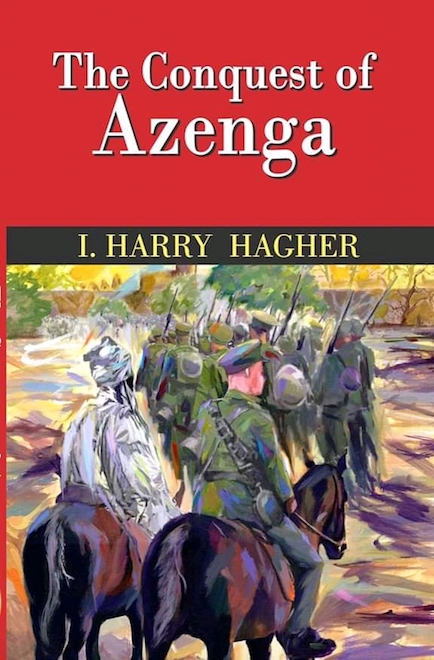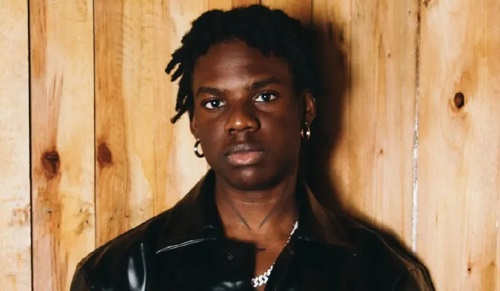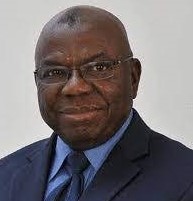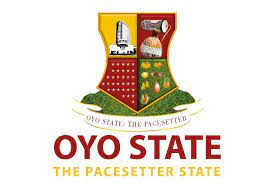Entertainment/Arts/Culture
HOW I. HARRY HAGHER WARS IMPERIALISM IN HIS DEBUT NOVEL : THE CONQUEST OF AZENGA

A preview By Cletus Akwaya, Ph.D.
Prof. Iyorwuese Hagher does not take his pen to issues lightly. The former High Commissioner to Canada, Ambassador to Mexico, former Minister and Senator is a high profile writer.
He is among the less than one percent of writers in the world to debut a novel after seventy one, having made a name for himself as academic, prolific playwright and writer on leadership themes.
Hagher was aspirant to the presidential ticket in the 2019 election. He lost. But he won the prestigious Gani Fawehinmi integrity award in 2020.That he returned to his first love ( writing) after his abortive presidential bid is understandable.
Heinemann Publishing House is poised to release his magnum opus, his debut novel: The Conquest of Azenga, this February. The Daily Assets Newspaper is pleased to write the preview of the novel here.The story of the novel is narrated through the odd obsessive omniscient eye of God; Professor Martin Bent, a ruthless District Officer in the British Colonial administration who had regretted the genocide and culturecide of the British imperialism in the Sofalian colony in the colonial period. The whole novel, the writer tells us; in the prologue, is Bent’s legacy bequeathed to him, as inheritance memoir, by the remorseful late professor.
This breakaway, breathtaking opening of the novel ushers the reader into the epical saga of the clash of civilization theme of the novel. It is the clash between the civilization of the British Upper Class versus Azenga egalitarianism. Lord Payne the leading poster child imperialist was the leading proponent of the Empire’s right to ruthlessly save the native savage tribes from themselves by forcing them to become civilized or eliminating them.
The novel opens with the recall of Lord Payne for his genocidal impulses, having wiped out the city of Kidina in the company of the Caliph of Sobikathanu Hadj Omar Hafiz Aatif, and now was on the verge of moving to wipe out the Azenga tribe which had earlier defeated the British Army under his command. The British Colonial Office and the Parliament were aghast at his conduct,
“ The Colonial Office, and the Parliament, accused Payne of being blood thirsty and war-mongering and against British character and taste for decency and Pax Britannica”.
Payne was adamant and showed no remorse at all and was even more determined to go back to London and win a new mandate to come and finish the job of wiping out the Azenga tribe as retribution for their having defeated a British military expedition and killing six Sandhurst trained officers with their poisoned arrows.
The Azenga were quite prepared militarily to stave off any attackers and were ready to face the enemy. When Lord Payne returns to Sofalia several years later having combined with his wife, Lady Liliana Payne to mount a successful propaganda, it was to a higher office as Governor general of Sofalia. He was now more powerful, and regarded as Founder of the new country: the British Sofalia, having amalgamated the Northern and Southern Protectorates.
He was even more resolved to destroy the Azenga civilization without putting a single British military boot on Azenga soil. He went after their war making structure by attacking their elders, the council of gerontocrats. A battle Royale ensued and the rest of the novel is the narration of this war of civilizations and how it affected both the Azenga and the British Empire.
The novel is structured in non-lineal twenty four chapters. It starts with a prologue and ends with an epilogue. In between these; the novel is populated with a wealth of characters that are symbolic and complex.
Each character represents a peculiar world view on the race question, national question, ethnicity question and helps the reader to delve into the mind of the Empire and the colonized. The battle against the Azenga and the use of the Lynch Method, to create a dependent slave colony three hundred years after the British granted independence to Sofalia is surreal. It is culturecide in its deep meaning.
As the novel progresses, the Azenga are increasingly aware of the menace and danger posed by the British Imperialist. But they are even more horrified that the British Indirect rule had somehow created chiefs out of the most unworthy scum “ the drum chiefs” who betrayed the tribe and this led to several suicides of Azenga elders who chose to die rather than be humiliated by British injustice.
Through the characterization of Payne and his wife, Hagher paints a picture of unalloyed ambition and blithe disregard for other cultures and other lives. Hagher is saying that this attitude allows the growth of corruption as the individual has the right to seek his own survival by any means possible.
The novel forces the reader to question the nature of British imperialism, after it is observed up close, away from the glitter of propaganda. What emerges is to question the buzz concepts of authority, duty and even Pax Britannica as sham decors to a more sordid preoccupation of Empire as greed, corruption, brigandage and the wiping out of non- western civilizations.
The conquest could not have been brought out at a more auspicious time when there is an overwhelming outcry in Nigeria (Sofalia?) at the mounting insecurity and cries by ethnic separatist groups denouncing the Lugardian amalgamation.
There is need for a national conversation on identity politics, national culture, tribal bigotry, national cohesion, and security within national borders. By making these the nodal issues of his novel, Hagher’s Conquest of Azenga is an important contribution to the canons of literally fiction that explores European Imperialism. The allegorical fiction is full of hard facts about Africa’s colonial legacy. It is universally compelling.
Hagher’s debut novel is brave and extraordinary. His narrative prose is lucid, tantalizing and the reader is constantly titillated. The author unflinchingly wars against external and internal imperialist forces and is in command with his characters, that his playwright skills allow him populate his novel, to express his disgust with imperialism which merely debases humanity.
The characters in the Conquest of Azenga are all defeated souls that lose their dignity, their morality, their sense of shame and even their lives. Everybody in Sofalia is conquered. Hagher’s tone is allegorical, picaresque, satiric and irreverent.
Finally, it is necessary to conclude that I. Harry Hagher has established himself a multi-talented cross-border genre maestro of fiction in the struggle for the establishment of humanism and social justice. His novel posits a unique literary style that combines the epic with the episodic and literal reality with magical reality. Let the reader decide.
Akwaya, Publisher /Editor-in-Chief, DAILY ASSET Newspaper is a Journalist, Political Scientist and Student of Literature.
Entertainment/Arts/Culture
FG Endorses Arewa International Film Festival, Pledges Support

The Federal Government has endorsed the Arewa International Film Festival (AIFF) and pledged its support to showcase the rich and historic beauty of Northern film, creative works, achievements and opportunities.
Minister of Art, Culture, Tourism and the Creative Economy, Hannatu Musawa pledged FG support on Wednesday at the official unveiling of the film festival.
The festival is tagged “Showcasing untapped potential and promoting the rich historical heritage and storytelling of the Sahel region”.
Musawa said that the creative industry remained the best platform to engage and promote Nigeria’s richness, history and diverse heritage to the world.
She, however, said that the Arewa film industry had to showcase its pride and prove its worth in the creative ecosystem to gain relevance.
“It is the responsibility of Arewa stakeholders to take ownership and stop complaining about what Nigeria has not offered them without showcasing what they have to offer Nigerians,” she said.
The minister said that the government was in full support of the festival, which would empower the teeming and growing population of youths in the region.
She said that plans were underway to create a film village among other projects to enhance the industry.
According to her, the Federal Government is currently working on developing film infrastructure such as studios and film villages, with a conscious effort to ensure that Kannywood is fully integrated into that growth process.
She urged the Arewa creatives not to work in silos, but tap into the creative industry potential and deliver worthy and tangible deliverables that would endear Nigeria and the global community to invest and sustain its craft.
She lauded the organisers of the festival for the initiative to showcase the beauty of the Arewa rich conservative creativity.
Musawa also commended the country’s creative industry for striving to brand, promote and rebrand the industry.
Managing Director of the Nigeria Film Corporation (NFC), Ali Nuhu said that the festival was an opportunity for the north to synergies with other regions in the country and beyond.
Nuhu said that it was also an opportunity to unveil new talents, empower and showcase actors, directors, producers and cinematographers in the region.
“The AIFF will serve as an opportunity to address the numerous problems in the arewa space, especially capacity building, skills acquisition, networking, opportunities, partnerships and sponsorships.
“When you look at Southern Nigeria’s creative industry and the kind of things they do, the opportunities they get, it is all because of platforms like this.
“I am excited about this for the filmmakers in the north, across regions and into the global community,” he said.
Convener of the AIFF, Rahama Sadau said that the festival was a cultural renaissance, a youth empowerment movement and a platform to reclaim the narrative of the Sahel creative industry.
Sadau said that the festival would screen over 100 outstanding films, celebrate women in filmmaking, parade royal durbar, award innovation and spotlight emerging stars from the region.
“We have been underrepresented in the global creative dialogue, but the AIFF aims to amplify the creative and cultural expressions of Northern Nigeria as well as celebrating the rich history, literature, and oral traditions.
“I am really excited for the world to hear our conservative stories of worth and value and the quest to protect our conservative nature,” she said.
She acknowledged the Federal Government’s commitment to providing an enabling environment for the growth of the creative sector, particularly in untapped regions like Northern Nigeria.
Sadau said that the government’s support would yield measurable impact, create jobs, empower youth and enable cultural diplomacy.
She advocated for inclusive narratives that reflect the diversity, richness and resilience of the Sahel region and its people in all creative works across the country.
| ReplyReply allForwardAdd reaction |
Entertainment/Arts/Culture
Davido, Chioma Jet Out to Miami for their White Wedding

Famous Nigerian singer, Davido, has jetted out of the country to Miami for his white wedding with Chioma, his wife.
Davido will officially marry Chioma in a white wedding ceremony in the United States this weekend.
A viral video shared by the singer’s cousin,
Adewale Adeleke, captured the moment his family members, including Hailey, his daughter with his second baby mama, were seen arriving in Miami.
Also in Miami are Davido’s crew members and associates, popularly known as 30 Billion Gang, 30BG.
Davido traditionally married Chioma in June 2024 in Lagos State after the arrival of their twins.
Entertainment/Arts/Culture
Rema’s ‘Rave & Roses’ Becomes First African Album to Hit 3bn Streams on Spotify

Nigerian singer Rema’s debut album, Rave & Roses (Ultra version), has become the first African project to surpass 3 billion streams on Spotify.
The lead single of the album, Calm Down (remix with American pop star Selena Gomez), made history last year as the first African song to hit the billion-stream mark on Spotify.
The combined versions of Calm Down contributed over 2 billion streams to the total album streams on Spotify, with the remaining 20 songs contributing less than a billion.
Rave & Roses (Ultra) is followed by South African singer Tyla’s eponymous debut album, with over 2 billion streams, on the list of the most-streamed African projects on Spotify.
Burna Boy’s African Giant and Love, Damini, Wizkid’s Made in Lagos: Deluxe Edition, and CKay’s CKay the First are the other African projects that have surpassed 1 billion streams on Spotify.























